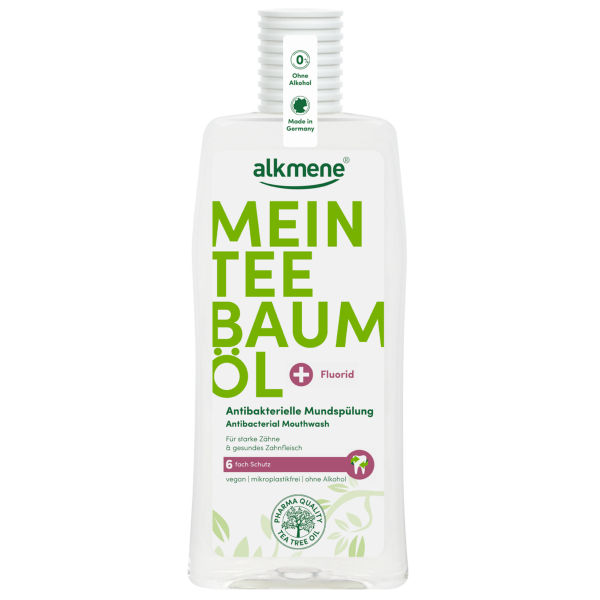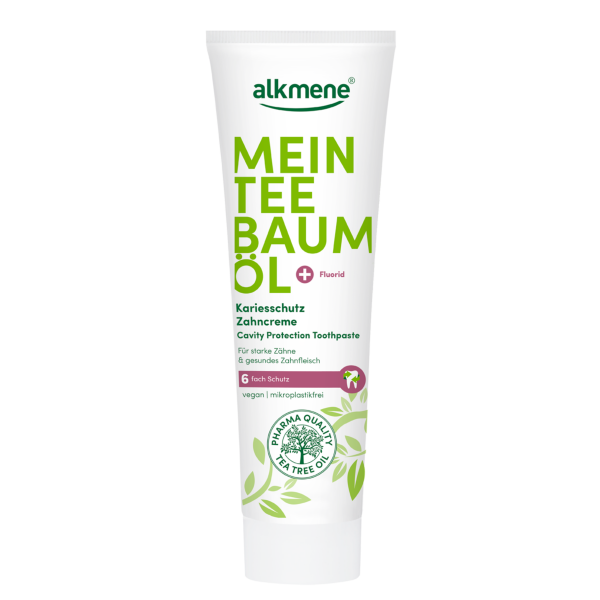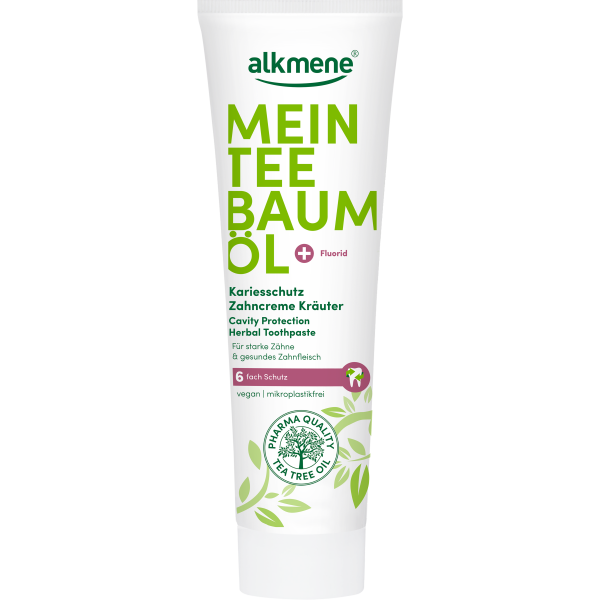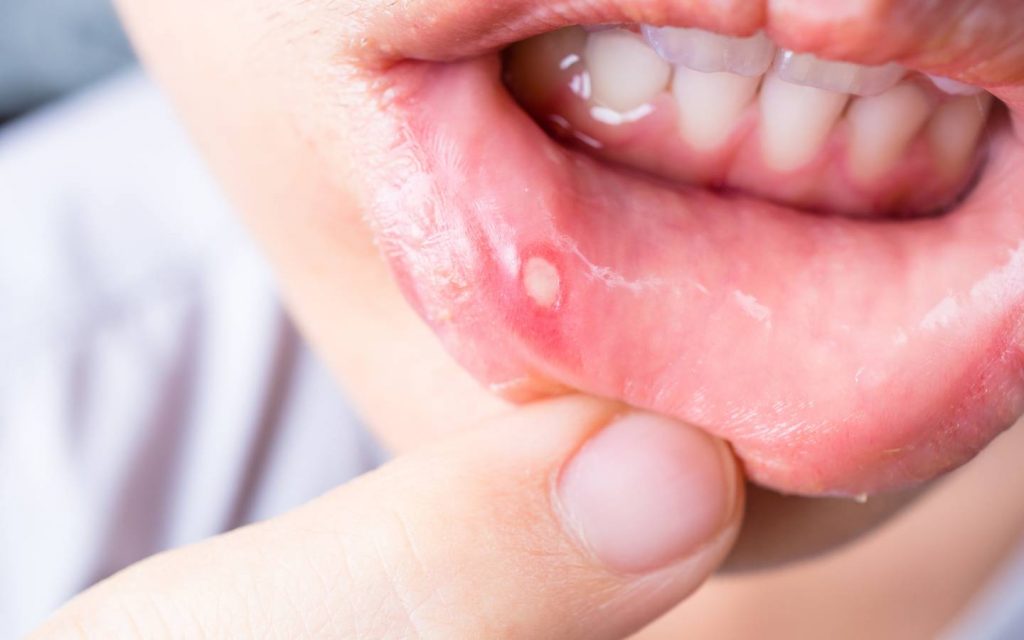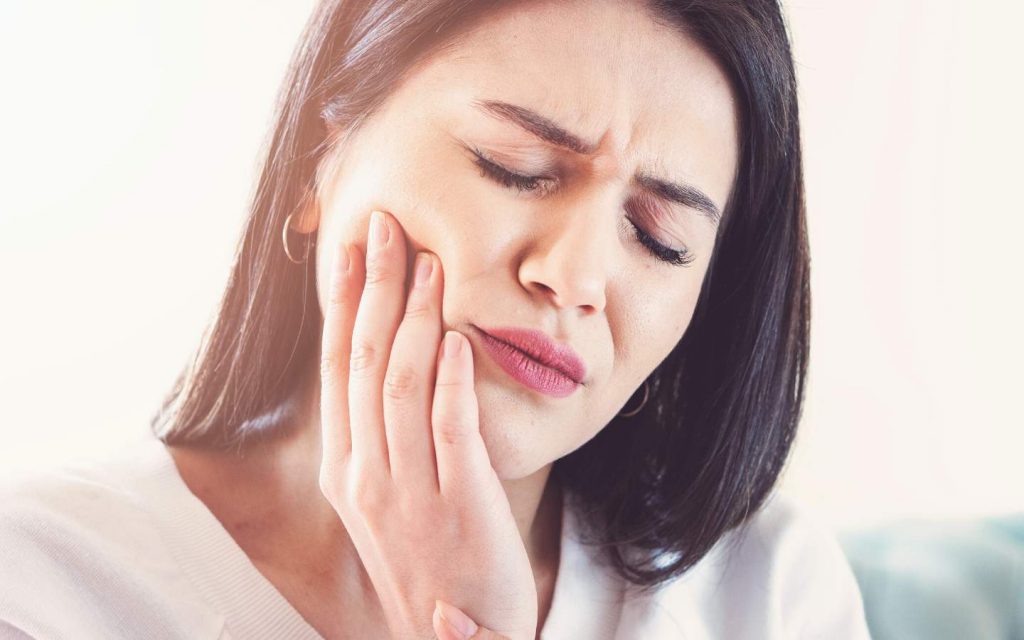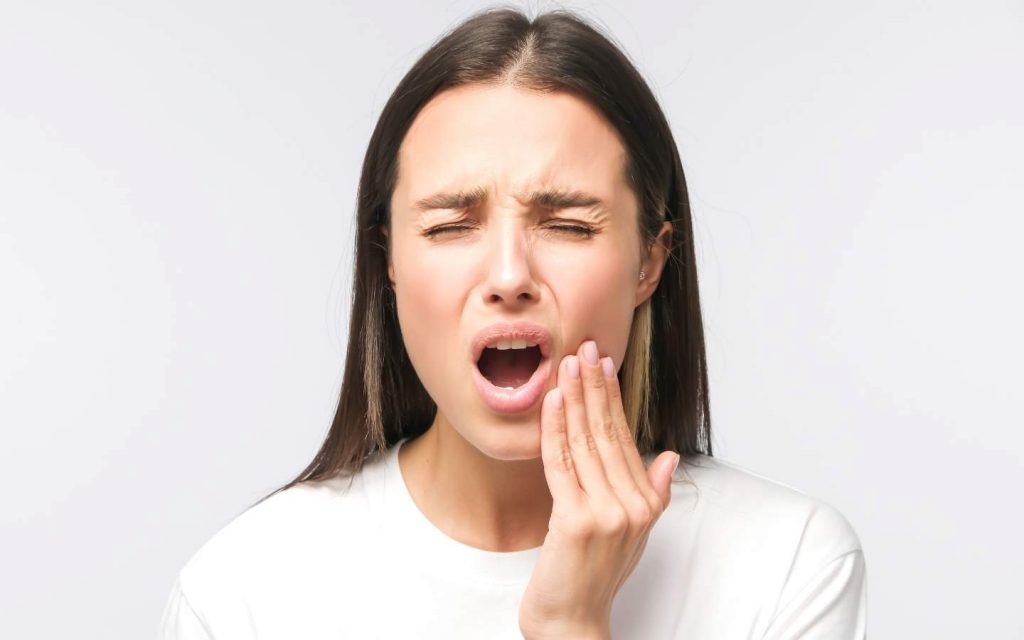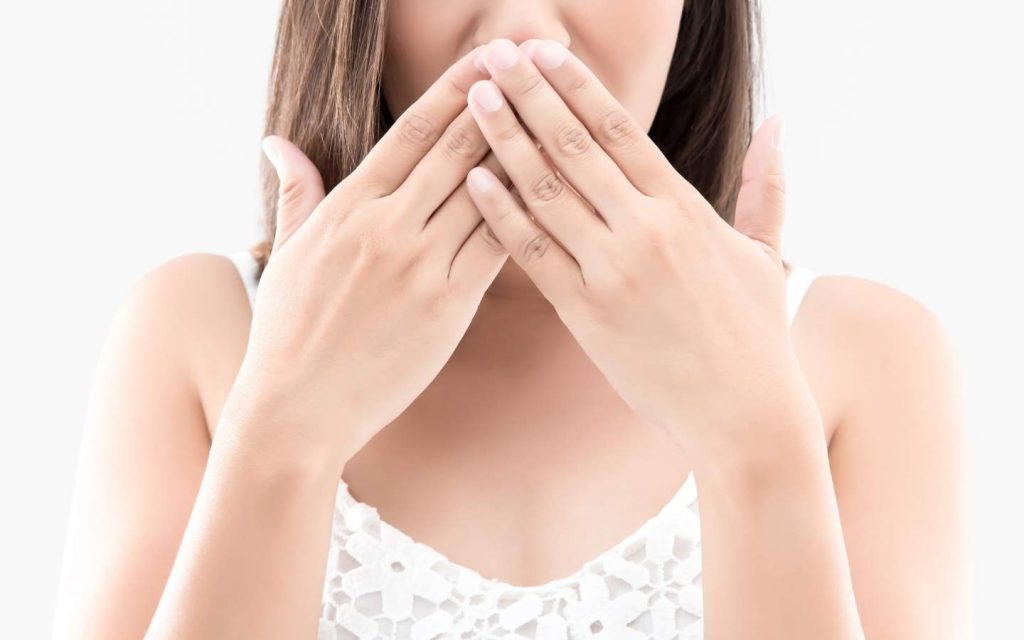


This article has been reviewed by:
Birgit Schlee
Dental hygienist
Whether after drinking a cup of coffee, eating dishes with plenty of garlic or in the morning after getting up: Each of us has certainly had the feeling of having bad breath. But when do we talk about bad breath, how does the unpleasant breath develop and what can we do about it? We will explore these and other questions in our tips against bad breath.
What is bad breath?
First of all, we would like to clarify what bad breath actually is. Ultimately, the term describes an unpleasant odor of the exhaled air that is not only temporary (for example, after eating onions), but persists over a longer period of time. In medical terms, the generic term is also divided into the two types “foetor ex ore” and “halitosis”.
- Foetor ex ore: This is a perceptible bad odor that occurs when exhaling through the mouth.
- Halitosis: Halitosis, on the other hand, is when the perceptibly bad odor also occurs when exhaling through the nose – i.e. with the mouth closed.
Good to know:
Bad breath is often a problem because we cannot notice it ourselves, but can only be made aware of it by our fellow human beings. If you suspect that you suffer from bad breath, a small self-test can help you. Clean your wrist thoroughly and then lick it a few times with your tongue. If you let your saliva dry for 1-2 minutes, you can smell your wrist. If you detect an unpleasant odor, you have found a first indication of possible bad breath.
How does bad breath develop?
Our dental expert and oral hygienist Birgit Schlee clarifies:
“Bad breath originates in the oral cavity or is triggered by certain foods and stimulants, among other things. Odor-forming bacteria on the tongue are responsible for this, and their decomposition then results in an unpleasant odor.”

The bacterial processes do not necessarily have to lead to bad breath. Because odor-forming bacteria are present in every oral cavity, it is ultimately their quantity that is decisive. If there is no bacterial balance due to an excess of the “culprits”, bad breath can also develop much more quickly.
If we talk instead about the form “halitosis”, then the development is mostly triggered by diseases that lie outside the oral cavity. These include bronchitis, tonsillitis or certain sinus infections. In the latter, for example, purulent processes take place in the nasal cavities, which can become noticeable through the odor escaping through the nose.
What can be the causes of bad breath?
The occurrence of bad breath can have many different causes – in about 80% of cases, however, this is to be located in the oral cavity. The bad smell can be caused by a lack of dental or oral hygiene, because bacterial plaque can accumulate in the mouth. Dental hygienist Birgit Schlee sees precisely these bacteria in 90% of cases as the trigger for bad breath.
Further reasons, which can lead to a bacterial imbalance – and thus also to bad breath – are made out for example by caries or gingivitis.
An additional problem is a dry oral cavity or a low salivary flow. Because food residues can thus be rinsed out of the mouth less effectively, the colonization of bacteria and the development of bad breath is promoted. Because smoking, the consumption of alcohol or some medications can lead to dry mouth, these factors are further causes of bad breath. Unpleasant breath in the morning can also be explained by reduced saliva production during the night.
Lastly, causes such as heartburn, acute gastritis or fasting / diets with hunger pangs should be mentioned, which can potentially lead to bad-smelling breath. Intolerances or underlying diseases such as diabetes mellitus are also conceivable as possible causes.
Our tips against bad breath
In our following tips against bad breath you will learn how you can easily achieve fresh breath:
NOTE: Our tips against bad breath do not replace the expert opinion of a doctor. So if your symptoms persist, you are unsure or you have pre-existing conditions, we recommend that you visit your doctor for clarification.

To clean the mouth from possible food residues and thus prevent a foul-smelling decomposition, it is important to brush your teeth regularly and thoroughly. If you want to know how to brush your teeth properly, read this article.
Remember to treat the interdental spaces frequently with dental floss, for example. Because food residues can quickly accumulate here, which then rot, it is important to remove the residues.
Because the tongue is also home to many odor-causing bacteria, daily cleaning of the tongue with a suitable brush can reduce the amount of bacteria in the saliva. However, care must be taken here so as not to injure the tongue.
Bacteria can also quickly accumulate on a toothbrush or tongue cleaner. These should therefore be cleaned or replaced at regular intervals.
The use of mouthwash can also be helpful against bad breath. Various ingredients neutralize bad breath for a short time. To achieve a longer-term effect against bad breath, mouthwashes must therefore also be adopted in daily oral hygiene.

It is a relatively banal tip, but a healthy diet is also very important in the fight against bad breath. For this reason, you should also avoid increased consumption of caffeine, nicotine and alcohol.
If the mucous membranes are dry, bacteria containing ammonia can form there, which in turn cause an unpleasant odor. Accordingly, our tip against bad breath is to drink a lot to keep the mucous membranes more moist.

High quality tea tree oil not only has an antibacterial effect, but at the same time can provide fresh breath. Add 3 drops to a glass with 100ml of water and rinse the oral cavity. You can find the right product in the following product slider.
![]()
